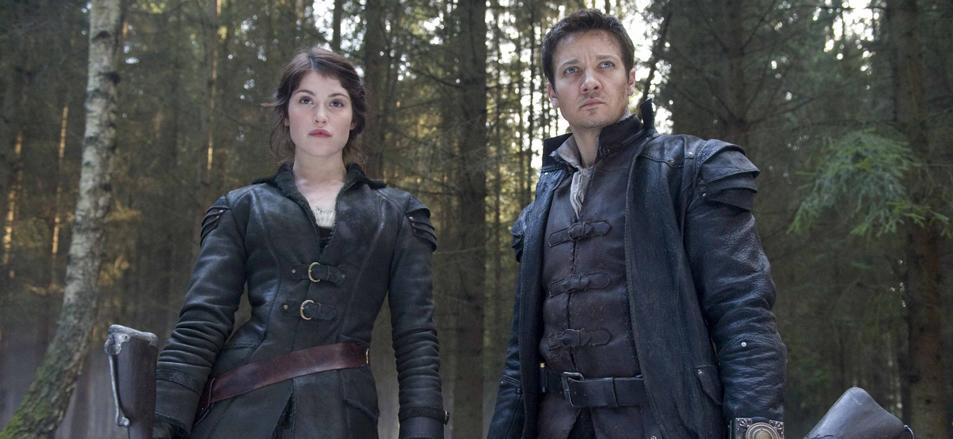Brothers Grimm fairy tale Hansel and Gretel gets superhero upgrade
Gemma Arterton and Jeremy Renner in “Hansel and Gretel: Witch Hunters.” (Photo by Paramount Pictures).
When the Brothers Grimm published a series of stories for their collection of fairy tales in 1812, the narratives were already full of of violence and brutality. Maria Tatar, editor and translator of the Annotated Brothers Grimm, says this darkness is precisely why their tales have become a favorite source of material in Hollywood.
Over the weekend, one of the Grimm Brothers’ most celebrated stories received an action packed Hollywood makeover in “Hansel and Gretel: Witch Hunters.” In the Grimms’ fairy tale, a brother and sister duo are lost in the woods. While trying to find their way back home, they stumble upon a candy house that belongs to a witch. To survive, they throw her into the oven and escape. In this film version, Hansel and Gretel have grown up to become gun-carrying bounty hunters.
Kristen Meinzer, co-host of the Movie Date podcast, says the familiar tale just serves as a set-up for the film released by Paramount Pictures.
“From there [Hansel and Gretel] embark on life killing witches all over the world in some sort of timeless space where they have semi-automatic weapons,” she says of the movie.
The Grimms’ fairy tales translate well into Hollywood films, Tatar says, because they used melodrama, sex and violence in their stories to keep readers’ attention.
“Hollywood has always been invested in these stories,” she said. “It’s the violence of the soul. You can go to any country and find stories like this that reach out and grab you, tug at you, and have all the horrors, all the what-ifs, all the worst case scenarios that any child or adult could imagine.”
Rafer Guzman, film critic for Newsday and Meinzer’s Movie Date co-host, says Hollywood’s remaking of the tale is part of the “superhero-ization” of everything.
“You’ve got this built in familiarity with these tales,” he said. “If [directors] can juice them up a little bit, action-ize them, make them faster, louder, they think that’s marketable, and it has proved to be.”
Tatar says the Brothers Grimm published books prior to their collection of fairy tales, but they never expected their stories would become a global sensation.
“They were lucky when they sold 50 copies of a book and they were taken by surprise when they discovered that they had a best-seller on their hands,” Tatar says.
The brothers were scholars who wanted to put together a collection of stories for their colleagues.
“They wrote to friends and academics,” she says. “They also listened to the stories of neighbors, read books and collections from many different countries.”
It was not until after the Brothers’ death that their collection became a phenomenon.
Though numerous films have been made using the more familiar Grimm tales “Cinderella” and “Snow White,” Tatar says it might be time for Hollywood to surprise moviegoers with lesser-known tales from the Grimm Brothers’ collection.
